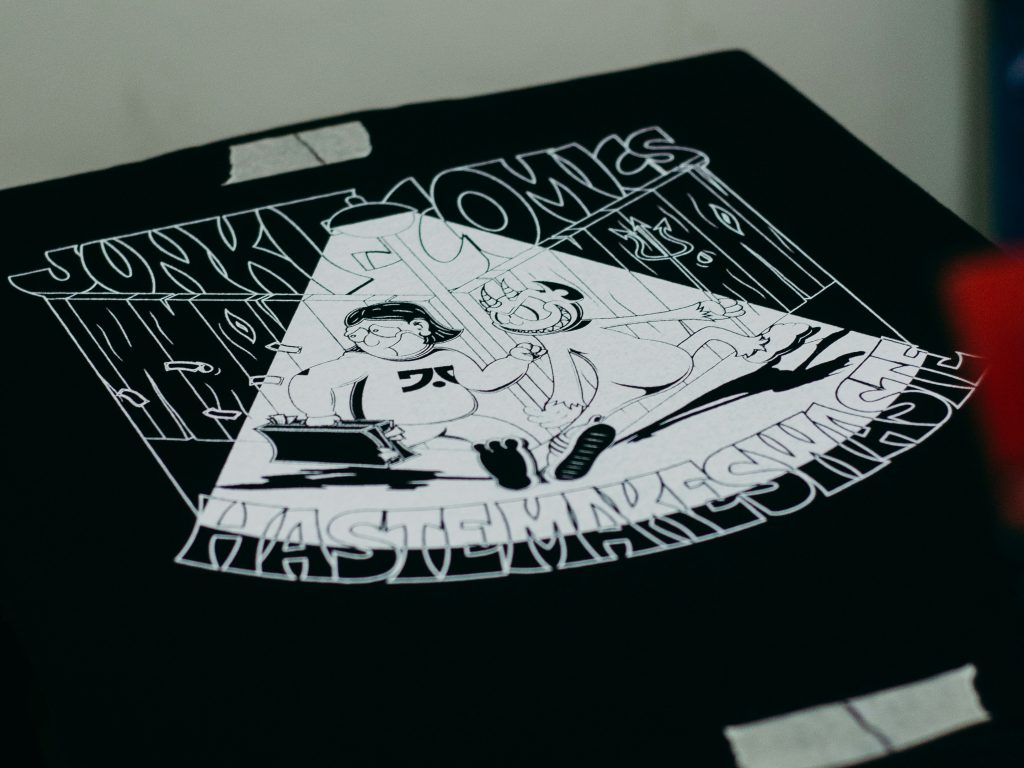Top 10 Mistakes to Avoid When Starting Your T-Shirt POD Store

Starting a T-shirt print-on-demand (POD) business sounds simple: you upload designs, customers buy, and a POD platform like ZeitStitch handles production and shipping. But in reality, many beginners run into common mistakes that waste time and money.
To help you avoid these traps, here are the 10 most frequent mistakes new T-shirt POD sellers make—and how to avoid them.
1. Choosing the Wrong Niche
One of the biggest mistakes is trying to sell to everyone. Generic T-shirt designs rarely stand out in a crowded market.
How to avoid it:
Pick a niche that has passionate communities—like gamers, pet lovers, or eco-conscious buyers. The more specific, the better. With ZeitStitch, you can test multiple niche ideas with low upfront cost.
2. Copying Designs from Others
Beginners sometimes copy trending designs from Amazon or Etsy. This not only risks copyright issues but also makes your brand forgettable.
How to avoid it:
Focus on original, unique designs that connect with your chosen audience. Even simple text-based shirts with creative typography can succeed if they’re authentic.

3. Overcomplicating the Store Design
A cluttered website with too many pop-ups and confusing navigation kills conversions.
How to avoid it:
Keep your store simple. Highlight your T-shirts with clean product images, clear descriptions, and an easy checkout process. ZeitStitch integrates with major e-commerce platforms to streamline this.
4. Ignoring Product Quality
Low-quality fabrics or poor printing leads to returns and bad reviews.
How to avoid it:
Always order samples from ZeitStitch before launching. This helps you confirm print quality, colors, and fabric feel. A few test shirts can save your reputation in the long run.

5. Pricing Without Strategy
Many new sellers set random prices or underprice to attract customers. This often results in little or no profit.
How to avoid it:
Research competitors and calculate your costs. Aim for a healthy profit margin—usually between 30–50%. Don’t forget to factor in shipping and marketing.
6. Neglecting Marketing
Just uploading designs won’t drive sales. Without traffic, even the best designs won’t sell.
How to avoid it:
Invest in marketing. Use social media, paid ads, and SEO-optimized blogs. Build a community around your niche. ZeitStitch makes it easy to create mockups for promotions, so you don’t need expensive photoshoots.

7. Not Testing Designs Before Launch
Some sellers upload dozens of designs without knowing if anyone actually wants them.
How to avoid it:
Test your designs on social media first. Run polls, post mockups, and see which ideas get engagement. Then only upload proven winners to your ZeitStitch store.
8. Overlooking SEO
Ignoring SEO means missing out on organic traffic from Google.
How to avoid it:
Optimize your product titles, descriptions, and blog posts with keywords like “funny cat T-shirt” or “eco-friendly graphic tee.” Over time, this can bring in consistent, free traffic.
9. Expecting Instant Results
Some entrepreneurs expect to get rich in the first month. When sales don’t come quickly, they give up.
How to avoid it:
Understand that building a brand takes time. Success in POD often comes after months of testing, adjusting, and learning what resonates with your audience.
10. Forgetting About Customer Experience
Many sellers focus only on designs and ignore customer service.
How to avoid it:
Respond quickly to customer inquiries, fix issues, and build trust. Happy customers will come back and recommend your store to friends. ZeitStitch’s reliable fulfillment ensures that your customers receive products on time, but your personal attention still matters.
Starting a T-shirt POD store is exciting, but avoiding these common mistakes will save you time, money, and frustration. Remember:
- Pick a clear niche.
- Create original designs.
- Test, market, and optimize.
With ZeitStitch handling the logistics, you can focus on building a strong brand and delivering value to your customers.
